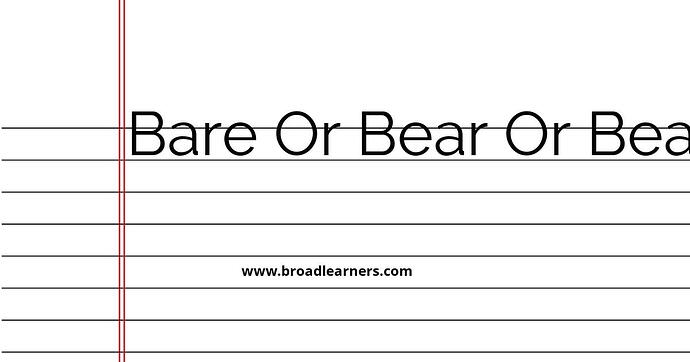'Bare', 'bear', and 'bear' are commonly confused words in English grammar. Understanding the difference between 'bare', 'bear', and 'bear' is important to use them correctly in written and spoken English.
'Bare' is an adjective that means naked or uncovered. It is used to describe something that lacks covering or is exposed.
'Bear' is a verb that means to carry or support the weight of something. It can also refer to enduring or tolerating something.
'Bear' is also a noun that refers to a large mammal with a heavy body, thick fur, and a short tail.
Let's take a closer look at the meanings and usage of 'bare', 'bear', and 'bear'.
| 'Bare' | 'Bear' | 'Bear' |
|---|---|---|
| The word 'bare' is used as an adjective to describe something that lacks covering or is exposed. | The word 'bear' is used as a verb to carry or support the weight of something. | The word 'bear' is also used as a noun to refer to a large mammal with a heavy body, thick fur, and a short tail. |
|
|
|
To remember the difference between 'bare', 'bear', and 'bear', it can be helpful to keep in mind their distinct meanings and usage.
Here are some examples of correct usage:
- She walked barefoot on the beach. (describing lack of footwear)
- He could barely bear the weight of the heavy suitcase. (expressing difficulty in carrying)
- I saw a bear in the forest. (referring to the animal)
Remembering the correct usage of 'bare', 'bear', and 'bear' will improve your grammar and communication skills.
